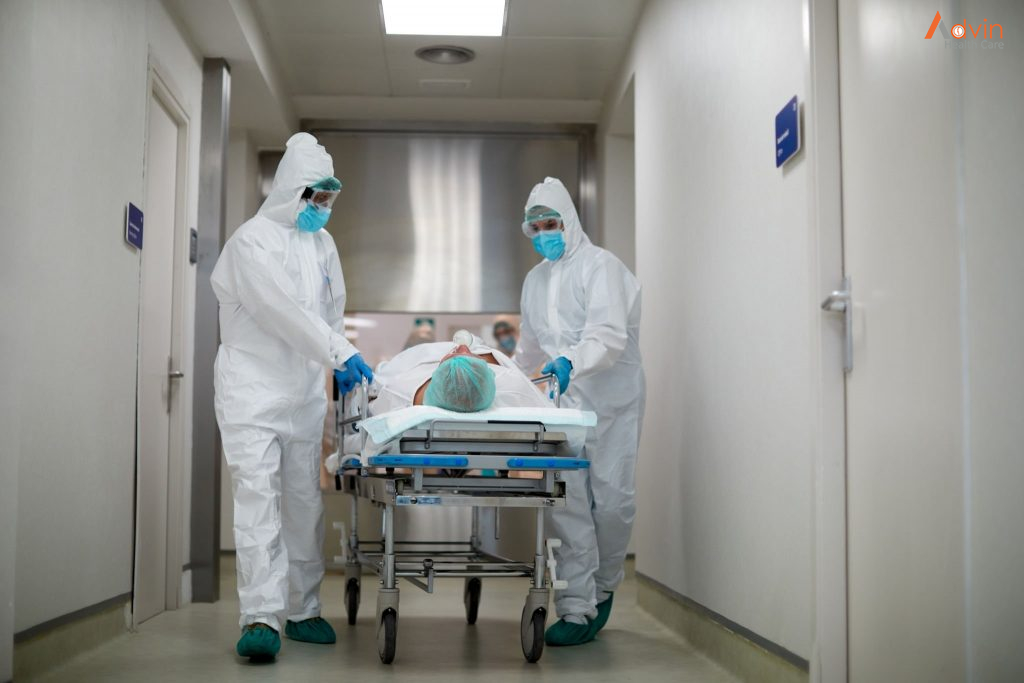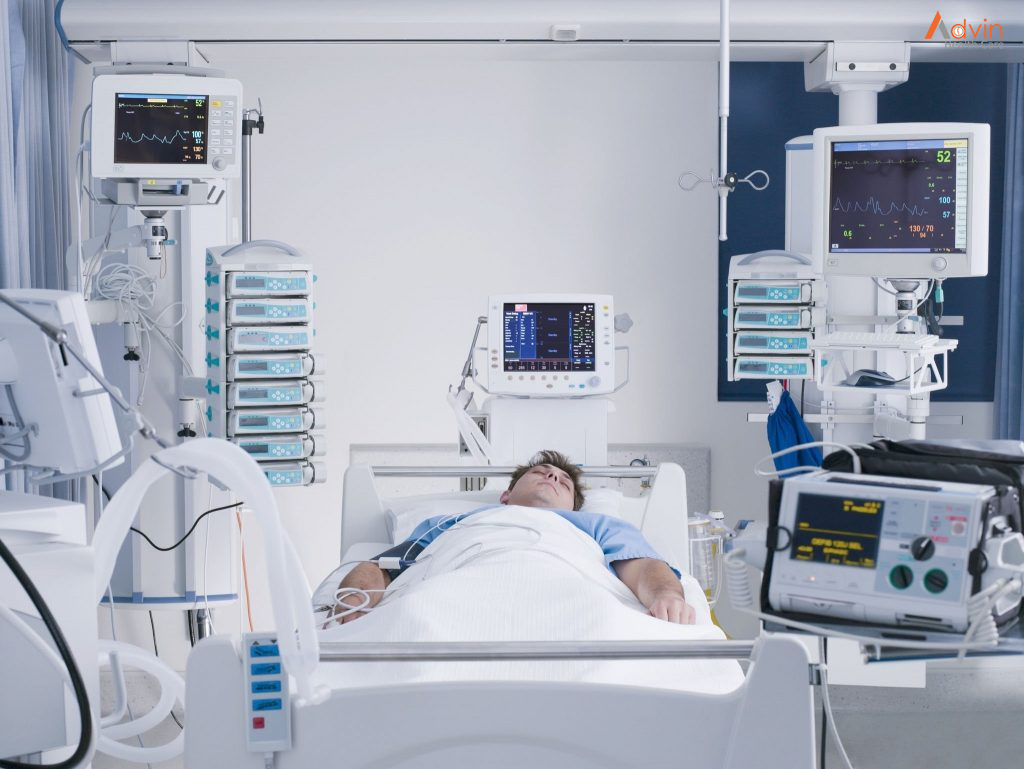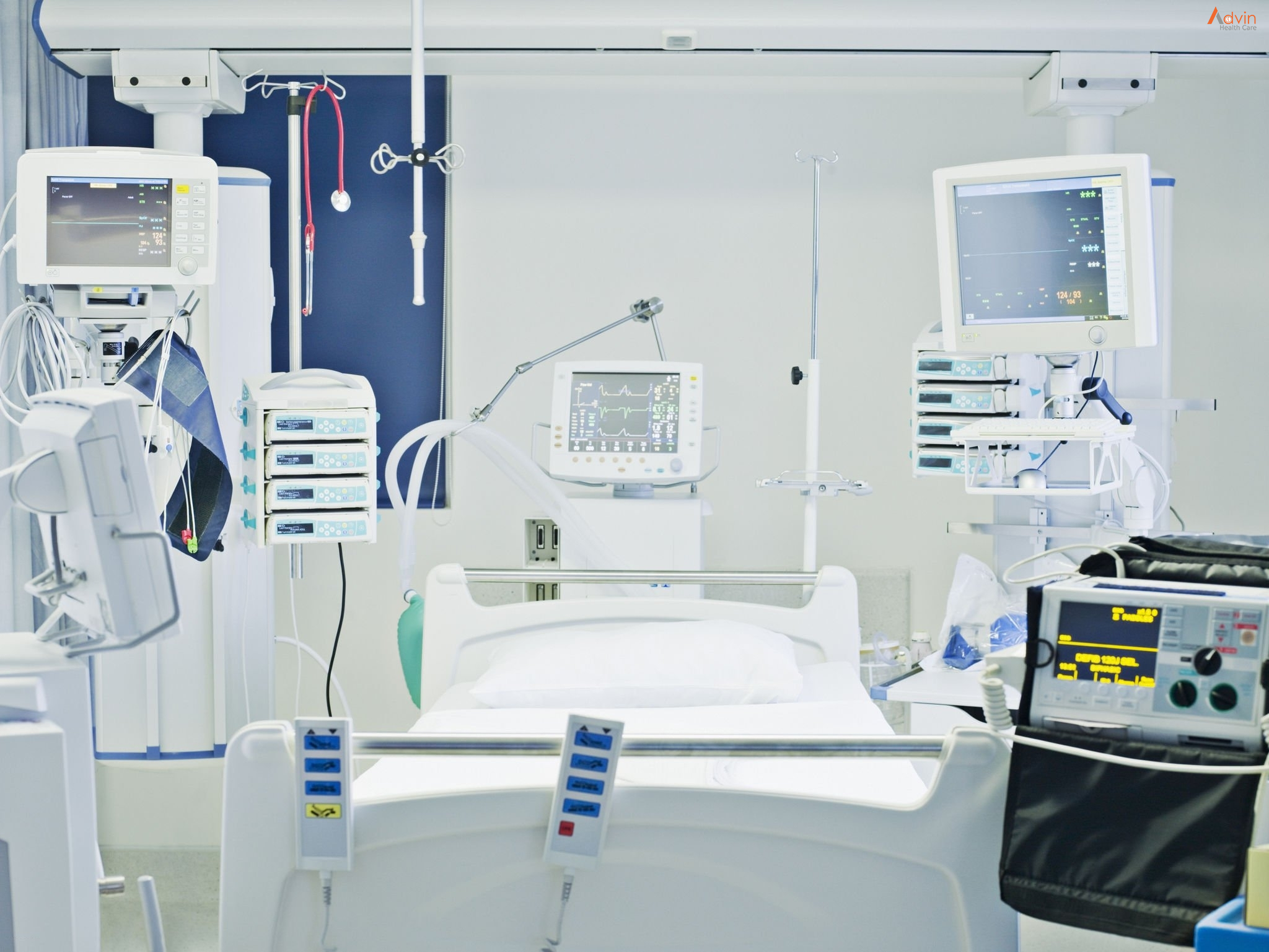What is an ICU?
ICU cares for people who have life-threatening conditions, such as a serious injury or illness, where they receive around-the-clock monitoring and life support. It differs from other hospital wards in that:
- ICU provides 24-hour care from a highly-trained team of specialists
- there are fewer beds, with lots of equipment to monitor and care for critically ill patients
- fewer visitors are allowed
History of ICU
The concept of ICU was first developed in 1854, during the Crimean war where seriously injured patients were separated from less injured persons by Florence Nightingale[1]. This simple step reduced mortality from 40 percent to 2 percent on the battle field. The first Intensive Care Unit in the world was formed in Copenhagen in 1953[2]. The pioneer was the Danish anesthetist, Bjorn Ibsen. This was developed when an epidemic of polioout-break happened in Denmark.
When intensive care is needed
Intensive care is needed if someone is seriously ill and requires intensive treatment and close monitoring, or if they’re having surgery and intensive care can help them recover.
Most people in an ICU have problems with 1 or more organs. For example, they may be unable to breathe on their own.
There are many different conditions and situations that can mean someone needs intensive care.
Some common reasons include:
- a serious accident – such as a road accident, a severe head injury, a serious fall or severe burns
- a serious short-term condition – such as a heart attack or stroke
- a serious infection – such as sepsis or severe pneumonia
- major surgery – this can either be a planned part of your recovery, or an emergency measure if there are complications
Admission criteria for ICU

The ICU is a special area of the hospital where the focus is on intense observation and treatment with increased staff and resources. This helps healthcare providers to respond immediately during emergency conditions. The trained doctors and nurses with the help of a multi-disciplinary team makes sure that the critical patient recovers rapidly and goes home. Patient who needs close monitoring and treatment are admitted to an Intensive Care Unit (ICU). Some examples of patients needing ICU care include:
- Patients with difficulty in breathing needing special machines called, ventilators
- Patients with low blood pressureneeding monitoring and medicines to treat it
- Patients with infections causing septic shock
- Patients who need close observation after certain surgeries, such as brain surgery, heart bypass and trauma surgery.
ICU is a place where patients are monitored acutely. ICU patients are monitored and treated by critical care team which include critical care specialists (intensivists), resident doctors, nurses, respiratory therapists, etc. Other staff at ICU include dieticians, physiotherapists, clinical pharmacists and other supportive staff like cleaning staff, security guards, etc. Fortunately, modern technology has progressed a lot and we can get intricate details of a patient’s vital parameters like heart rate, breathing rate, oxygen level and blood pressure. This is done by making use of multiple devices with numerous wires that are seen, which are constantly monitoring the patient.
Types of Intensive Care Units (ICUs)
Intensive care units can be organised based on the pathologies/conditions treated (e.g. neurological, trauma, burns, medical or surgical ICUs) or by the age group of the patient admitted (adult or paediatric).[2] Specialized intensive care units include medical, surgical, pediatric and neonatal intensive care units.
Medical intensive care unit
The medical intensive care unit is dedicated to the care of adult patients with medical conditions requiring frequent observation, specialized monitoring and medical treatment. These include illnesses such as diabetic ketoacidosis, gastrointestinal bleeding, drug overdose, respiratory failure, sepsis, stroke and cancer.
Surgical intensive care unit
The surgical intensive care unit is dedicated to the management of postoperative patients, including postoperative patients who have undergone major abdominal surgeries, craniotomy patients, thoracotomy patients, unstable multiple trauma patients and any surgical patient who requires continuous monitoring or life support.
Pediatric intensive care unit
Critically ill children are managed in the paediatric intensive care unit. Children who had just undergone surgery and are at risk of deterioration are also managed in the pediatric intensive care unit.
Neonatal intensive care unit
The neonatal intensive care unit is responsible for the management of premature, high-risk and critically ill infants.[9] Neonates with congenital disorders and birth complications are also managed in the neonatal intensive care unit.
Why are people admitted to the ICU?
A person is likely to be admitted to ICU if they are in a critical condition and need constant observation and specialised care. This can happen:
- after major surgery
- following an accident (e.g. car accident, severe burn)
- during a chronic or terminal illness (e.g. heart or kidney failure, stroke, heart attack)
- during a serious infection (e.g. pneumonia, sepsis)
- if a baby is born prematurely or with a serious illness – there is usually a special ICU for babies called the neonatal intensive care unit, or NICU
What happens in the ICU?

ICU can be daunting to both the person being admitted and their visitors due to the lines, tubes, wires and monitoring equipment.
ICU patients can be connected to a wide range of machines, the most common being a heart monitor and artificial ventilators (when patients can’t breathe for themselves). Many ICU machines beep and make loud noises and alarms to let staff know if a patient’s condition changes.
There are also likely to be several tubes either putting fluid and nutrients into the patient or taking other fluids out.
There are many medical staff in ICU. Each patient usually has a dedicated specialist nurse, who regularly checks the equipment and any life support systems.
The ICU healthcare team understands how distressing ICU can be and is available to support immediate family.


